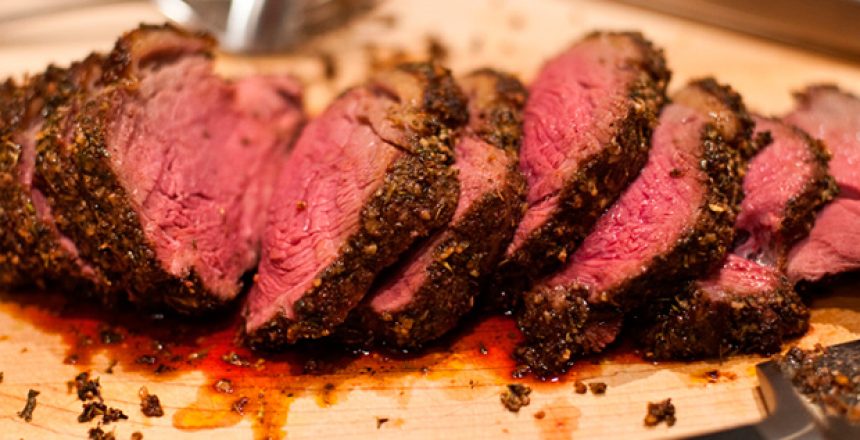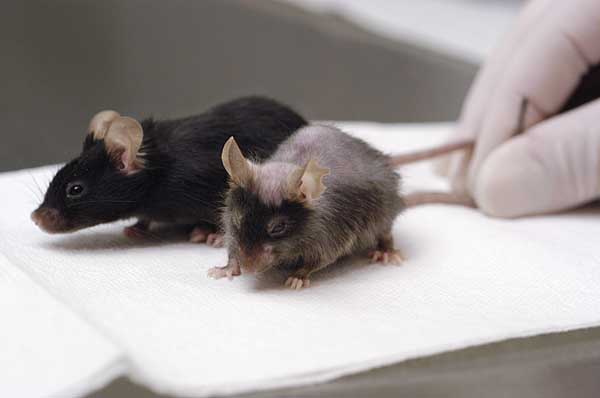U.S. dietary guidelines have called for people to decrease their intake of saturated fat, on the grounds that saturated fat causes cardiovascular disease. The theory that saturated fat causes heart disease is now known to be false, and evidence now shows why decreasing dietary saturated fat may be harmful.
What saturated fat is
Fat can be classified according to its degree of chemical saturation; thus we have:
- polyunsaturated,
- monounsaturated
- saturated fat.
Polyunsaturated and monounsaturated fat are most associated with plant fats and oils, although there’s plenty of both in animal foods also, and plant foods can contain saturated fat. Seed (vegetable) oils are high in polyunsaturated fat, while olive oil is high in monounsaturated fat.
Decreasing the amount of saturated fat in the diet generally means decreasing the amount of meat, dairy, and eggs that we eat.
However, when we decrease the amount of saturated fat that we eat, we need to replace it with something, usually either a different type of fat, or with carbohydrates.
Replacing saturated fat with carbohydrates increases heart risk markers
If you replace saturated fat with carbohydrates, it could make you diabetic.
Protein and fat were not associated with diabetes prevalence when energy intake was taken into account.
While most know that corn syrup (such as high fructose corn syrup, HFCS) is harmful, recall that mainstream health organizations and the U.S. government issued virtually no warnings about possible dangers of HFCS and sugar. It was all about the saturated fat and cholesterol.
They had most people believing that eggs would kill them. Food companies produced thousands of “low-fat” products that were loaded with sugar.
Restricting carbohydrates, on the other hand, produces a unique metabolic state that improves lipid markers.
LDL cholesterol, the so-called “bad” cholesterol, can be composed of small, dense particles, or large, fluffy particles, and it’s the small dense particles that are associated with heart disease risk. A high fasting insulin, together with small, dense LDL particles, was associated with about a 6-fold increased risk of heart disease.
Higher intake of saturated fat means an increase in LDL particle size.
Yes, more saturated fat could decrease heart disease risk, while replacing saturated fat with carbohydrates could increase risk.
Replacing saturated fat with vegetable oils raises the death rate
Dietary guidelines called for using seed (vegetable) oils in cooking and dressing food.
They called for replacing fats such as butter, tallow, and lard with seed oils such as safflower, soybean, and corn oils.
That was a bad move.
It turns out that whenever any improvements were seen in heart disease or death rates, they’re due to an increase in omega-3 fatty acids., according to a recent meta-analysis.
Seed oils are largely composed of omega-6 fatty acids, and when only omega-6 fatty acids are increased, heart disease rates and death rates rise.
“Advice to specifically increase n-6 PUFA intake, based on mixed n-3/n-6 RCT data, is unlikely to provide the intended benefits, and may actually increase the risks of CHD and death.”
Another study noted, “… there was no indication of benefit from the replacement of saturated fat with vegetable oils rich in linoleic acid, with either a composite outcome of myocardial infarcts plus death from coronary heart disease or non-fatal myocardial infarcts alone. Thus, although limited, available evidence from randomized controlled trials provides no indication of benefit on coronary heart disease or all cause mortality from replacing saturated fat with linoleic acid rich vegetable oils.”
A re-analysis of data from the Sydney Diet Heart Study found increased death rates in men who replaced saturated fat with vegetable (seed) oil.
Use of these data from the Sydney study incorporated into an updated meta-analysis found that increasing linoleic acid with seed oils was associated with about a 30% increased risk of death from heart disease.
Way back in 1971, they found that men who used seed oils in place of animal fats died of cancer at about twice the rate as those who did not use seed oils.
They knew.
But they kept recommending seed oils anyway. Probably to save their beloved cholesterol hypothesis of heart disease.
Is the traditional diet-heart hypothesis of heart disease correct?
The diet-heart hypothesis says, in brief, that certain foods, mainly animal foods with saturated fat, raise your cholesterol, which then clogs your arteries.
Is it correct?
There is no benefit to decreasing saturated fat intake if it’s replaced with carbohydrate or polyunsaturated fat from seed oils. There’s no benefit from decreasing intake of animal foods.
So, as traditionally formulated, it is incorrect.
But it appears they just got the food wrong. Food can cause heart disease, as long as the food contains the processed food trifecta:
Consumption of seed oils, sugar, and refined carbohydrates is sky high
The chart below shows the consumption of linoleic acid, the main component of seed oils, in the U.S.

American diets of 1909, as well as pre-agricultural diets, were lower in linoleic acid than what about 90% of Americans now consume. Most of that is due to the consumption of soybean oil.
Americans consume about 58% of calories as ultra-processed foods. A large number of Americans get over 20% of their calories as sugar, and few get less than 10%.
Americans consume about 50% of their calories as carbohydrates.
Conclusion: Cutting down on saturated fat may be harmful
If you cut back on saturated fat, you must replace it with something.
Replacing it with seed oils or carbohydrates worsens health.
A meta-analysis published in 2014 said this about saturated fat:
“Current evidence does not clearly support cardiovascular guidelines that encourage high consumption of polyunsaturated fatty acids and low consumption of total saturated fats.”
If current evidence, with its thousands of studies and trials, does not support lowering saturated fat consumption, it seems unlikely that any new studies will change the balance of the evidence.
Demonizing saturated fat was a mistake. A big one.
Since saturated fat does not cause heart disease, there’s be no need to cut back on it anyway. Since humans have been consuming saturated fat in large quantities for a long time, it makes no sense that it would suddenly start to cause heart disease in the 20th century.
What did cause the heart disease spike in the 20th century? Cigarettes, seed oils and their products such as margarine and shortening, and sugar, are the most likely suspects, in my opinion.
Mainstream dietary dogma over the past several decades has been harmful, and as we see in this article, not even necessary in the first place.














17 Comments
I don’t know if saturated fats are good or not, but your argument destroys a straw man. The alternative to saturated fat is not sugar and seed oil, but fresh fruits and vegetables. BTW, as I have recently heard, fructose, when packaged in fresh fruit, does not cause any harm.
If it’s a straw man, it’s one that dietary guidelines encouraged. They said to use seed oils in place of animal fats, and declared refined carbohydrates and sugar as a benign alternative to animal foods.
Your comment is asinine – You are the strawman. There are more calories in a tablespoon of olive oil than a pound of broccoli. You’d have to eat 10 pounds of spinach to match a single strip steak. Are you going to make that substitution? Why don’t you go on a diet of watermelon and tell us all how healthy all the fructose has you feeling.
That depends what you mean by “harm.” There is an old adage in the bodybuilding community: “Fruit is good FOR you, but it looks bad ON you.” Fructose is most easily converted into fat, by the liver. Not a good choice, if having optimal muscular definition is a priority.
Simple. Replace saturated fats with whole foods like fruits, veggies, grains, beans. Then get a nice serving of healthy fats from nuts, seeds and avocados. Lay off the saturated fat, oils and processed foods/candy and youre good
I like my veggies, fruits, beans…But I have no intention of doing without such great foods as butter, cheese, cream, full cream milk, coco nut oil and of course lamb chops !
All good health building foods !
Isaac and Mike,
To be a fair substitution, it seems to me that at least the calories, nutrient profile, and signaling characteristics need to be loosely similar without introducing any problematic foods such as grains would be for many people. While fruits and vegetables are fine for many people and I eat them myself they don’t seem like a fair substitution. I don’t eat a lot of saturated fat but what I do get comes mostly from eggs and a small amount from grass-fed meat, butter and coconut oil. Replacing the nutritional profile of an egg (AKA nature’s multivitamin) with other things would take a lot of research and might not be possible, all for no known benefit unless I has a sensitivity to something in the eggs.
My theory is that the saturated fat scare chased a lot of people away from eggs (including myself for while back in my vegan days) , and the resulting nutrient deficiencies (such as choline and B12) caused many health problems with that one change alone.
I agree with Dennis’s point that without telling people at least how to directionally duplicate the foods with Saturated fat, (not that I think Saturated fat is always bad, and we eat foods, not macro nutrients) then bad substitutions can be assumed.
There is a lot of information coming out lately about the benefits of a high fat – low carb diet.
To Mike. I think you missed the point of the article. Dennis states that the research shows saturated fats are not harmful. Millions of years of evolution also confirm this. We humans are designed to optimally run on saturated fats, not highly processed and reactionary industrial seed oils or even the “grains” that you recommend. Most grains are highly refined and act like sugar bombs in our bodies. Not to mention the gut lining harm caused by gluten. Personally, I love when people preach to me that a vegan diet is the way to go and they happen to be obese from carb over consumption. As for (Franken) fruits, you should look up a great article by Dennis on how fruits have been bred to be sugar bombs. I’ve cut back my fruit consumption and feel better for it. (I do take C supplements tho).
(OT)
A thought that occurred to me after comparing cultural practices of fasting worldwide:
Fasting periods cross-culturally are usually started with a feast;
the latter would increase blood glucose and other nutrients in blood for a period of time far above typical levels;
this could induce dormant microbes in the body to leave their hiding places
(Examples:)
https://en.wikipedia.org/wiki/Dormancy#Bacteria
https://en.wikipedia.org/wiki/Intracellular_parasite
and begin to proliferate; this would increase the chance that the immune system detects them and is able to produce anti-bodies against them;
the immediately following fasting period is characterised by low glucose and nutrient availability in the blood, as well by greatly increased autophagy and generally increased immune system effectiveness;
therefore, a feast follwed by a fasting period could result in a greater microbial self-cleansing of the body than a feast initiiated without prior feasting.
Sorry, last sentence must read correctly:
“… than a fast initiiated without prior feasting.”
Interesting idea. How about this one: statins have an antibacterial effect.
Another thing perhaps interesting:
Our genetically closest animals, chimpanzees, not only consume alcohol in nature (palm wine)-
https://janegoodall.ca/our-stories/10-things-chimpanzees-eat/
– but also eat a lot of different leaves, even crave them regularly. If they cannot get them, they are even risking their lives to get at them (for example in zoos of the past, where they were otherwise well fed, but received no fresh leaves, chimps even repeatedly braved electrical fencing – not so much to gain their freedom, but to reach fresh leaves, not only for themselves, but also for distribution to their troop).
We humans also enjoy leaves – we just prefer to “drink” them, in the form of tea.
This seems more than just a simple coincidence.
Actually, chimpanzee and human food preferences seem almost identical – if chimps get the chance to eat what humans have for food. Not only do they also hunt for meat (and eggs), which are prized food items, they also wage war – among other reasons also for getting meat by cannibalistic means (again there are human parallels).
I just wondered if there could be some insight gained from that area, as chimps and humans also tend to suffer from very similar health- and aging-related problems.
I always felt a dislike of apes, and so avoided the topic; but recently I read “Chimpanzee Politics” (after learning that Newt Gingrich made it recommended reading for newcomers to politics in Congress in the early 90s) and found myself astonished at to what large degree we really are just “upgraded” apes.
https://asknature.org/strategy/self-medicating-with-plants/
https://www.cnet.com/news/chimps-who-drink-study-finds-chimpanzees-use-leaves-to-chug-chug-chug-in-the-wild/
Also, in some sense, Chimpanzees exercise – do endurance and strength training, at least the males – in what primatologists call “displays”, basically intimidation and “showing-off”-behavior of males – they are exhausting themselves for an hour or so regularly , by carrying and throwing heavy tree branches and big stones, and by racing back and forth at max. speeds (sprinting).
This behavior is for showing off/proving endurance and strength to the group, so that social status position can be judged by the other chimps without serious physical fights between the males.
It’s not exactly a weight-lifting or sprint or athletics contest like humans do, but still eerily similar.
“Corn syrup” is not the same as “high fructose corn syrup.” The former has been around for over 100 years as the Karo brand. Using bacteria to make edible sugar products from grains, etc. is not new. What is new is that instead of glucose and dextrose, the final product has a lot of fructose in it. Far sweeter than glucose, not as much needed. ($$$$$).
Be aware that “agave nectar,” is, I believe, HFCS.
As always, the cardinal rule of toxicology prevails: A little bit won’t hurt you, whether fructose or linoleic acid. The dose makes the poison.
If we’re going for alliteration: Cigs, seed oils, sugar, and *sitting*.